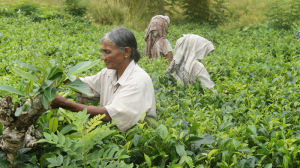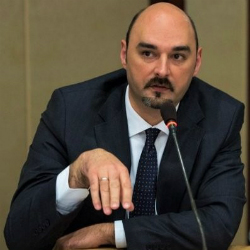
Aon plc is a provider of risk management, insurance and reinsurance brokerage, human resources solutions and outsourcing services. Oxfam in Sri Lanka works to alleviate poverty. Etherisc, an insurtech startup, is developing a protocol for decentralised insurance applications.

“Oxfam in Sri Lanka expertise in climate-smart agriculture and our long-standing engagement with farmer communities, provides us with in-depth knowledge about the opportunities and challenges that farmers have to climate and weather events,” said Bojan Kolundzija, the Country Director of Oxfam in Sri Lanka. “Allowing farmers to access the blockchain platform is an important milestone that is bringing an effective and affordable risk transfer mechanism to a large portion of the Sri Lanka economy.”
Insurance, farming and blockchain
Historically, there were major barriers which inhibited farmers from obtaining insurance. These included:
- a lack of affordable and reliable insurance products
- minimal understanding about how insurance might help a farmer survive
- the challenges associated with when and how a claim on a policy might pay out.
Blockchain technology directly addresses those issues – because the insurance products are automated. Automation transforms and simplifies the claims process:
- a farmer does not need to submit a claim
- the insurer does not need to send a claims adjuster out into the field.
In addition, this simplified process produces:
- reduced administration costs
- a higher percentage of the premium income being used for claims payment and immediate, fully trusted pay-out.

Hugo Wegbrans, the Global Chief Broking Officer for Aon, said: “Strong collaboration, such as this initiative with Oxfam and Etherisc, allows us to broaden the potential positive impact we can have on people, families and small businesses around the globe.
“At the heart of our work is a mission to empower economic and human possibility – and that is exactly what we are doing here.”
The Oxfam and Etherisc dimensions
The coordinated effort which this launch represents includes Oxfam in Sri Lanka which has:
- a longstanding expertise in agriculture
- deep engagement with the local farmer community
- an understanding of the important role of agricultural insurance.
Oxfam’s efforts amplify by Aon’s expertise in reinsurance and global insights. To this they have added Etherisc’s knowledge in applying blockchain technology to insurance. Sanasa Insurance, Oxfam in Sri Lanka’s partner, has joined the initiative to provide local expertise, networks and operational execution.
Etherisc’s ecosystem supports the DIP (Decentralized Insurance Platform) Foundation. It contains:
- product builders
- risk pool keepers
- resellers
- oracles providers
- claim adjusters
- relayers
- underwriters.
The Generic Insurance Framework (GIF) includes:
- core smart contracts (provided by the DIP Foundation and partners)
- microservices
- application or product specific smart contracts.
Michiel Berende, the Chief Inclusive Officer at Etherisc said, “Farmers represent a third of the workforce and account for almost 20 percent of the economy, yet very few have insurance. This made Sri Lanka a perfect candidate to feel the benefits of decentralized, collaborative and automated insurance. This alliance is really a cooperation between all and showcases blockchain for social good.”

Enterprise Times: what does this mean
Though it is not always the case (consider, for example, Block Commodities in Uganda), blockchain rarely has much significance for the small holding farmer, about as much as insurances does, which is to say ‘not a lot’. This combined launch promises much, if the farmers believe and buy.
What intrigues, if Enterprise Times’ understanding is correct, involves the assertion “a farmer does not need to submit a claim (while) the insurer (Aon) does not need to send a claims adjuster out into the field.” If an event occurs, say a poor monsoon or even an overabundant one (which washes away crops), then all those insured in a devastated area will receive a payout. This would be a radical departure from both insurance practices. It becomes feasible because of blockchain.

























